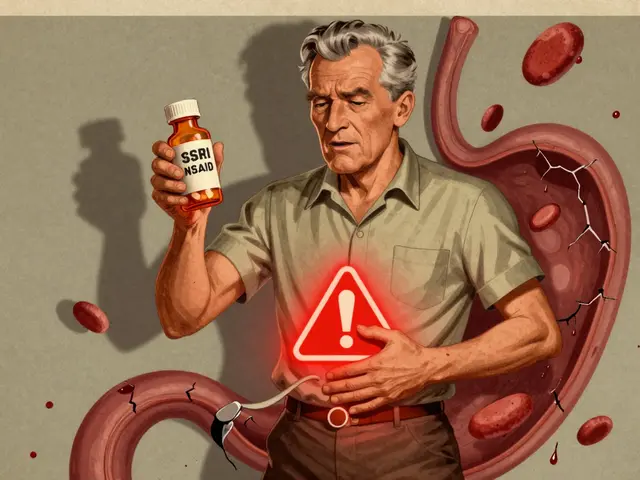Bicalutamide — quick, clear guide for patients
If you’ve been told you need bicalutamide, you probably have questions: what it does, how to take it, and what to watch for. This page explains the basics in plain language so you can talk to your doctor with confidence.
How bicalutamide works
Bicalutamide is an oral antiandrogen. It blocks testosterone from attaching to cancer cells in the prostate, slowing tumor growth. Doctors often prescribe it with a luteinizing hormone–releasing hormone (LHRH) analog or after surgery to lower the risk of cancer progression. It’s not a chemotherapy drug — it’s targeted hormonal therapy that works by cutting off a key growth signal.
Typical dosing for adult men is 50 mg once daily for non-metastatic disease, but your doctor may adjust the dose if it’s part of a combination or for other reasons. Always follow the exact prescription you’re given — don’t change dose or stop suddenly without checking with your care team.
Safety, side effects, and what to watch for
Common side effects are hot flashes, breast tenderness or enlargement, fatigue, and mild stomach upset. Some people notice changes in mood or libido. Most of these are manageable, but tell your doctor if they’re severe or interfere with daily life.
More serious risks include liver problems (watch for yellowing of skin or eyes, dark urine, severe nausea) and rare lung inflammation. Your doctor will likely check liver function with blood tests before starting and periodically after. If you’re on blood thinners like warfarin, labs may need closer monitoring because bicalutamide can affect clotting management.
Avoid taking bicalutamide if you are pregnant or breastfeeding — it can harm a developing fetus. Women rarely use this drug, but if exposure is possible, discuss strict precautions with your provider.
Drug interactions matter. Bicalutamide is processed in the liver, so tell your doctor about all medicines, supplements, and herbal products you use. That includes over-the-counter pain relievers, strong antibiotics, and some heart meds. If you’re unsure, bring a list to appointments or use a single pharmacy so they can check interactions for you.
How will you know it’s working? Doctors usually monitor PSA (prostate-specific antigen) levels and imaging as needed. Regular follow-up lets your care team spot progress or side effects early and change treatment if needed.
Practical tips: take the tablet at the same time every day with or without food, swallow whole, and don’t crush. Keep a symptom diary for side effects and bring it to visits. If you miss one dose, take it when you remember unless it’s close to the next dose — then skip the missed pill and continue as normal.
Looking for alternatives? Other antiandrogens include flutamide, nilutamide, enzalutamide, and apalutamide — each has different benefits and side effects. Discuss options with your oncologist based on disease stage, other health issues, and your treatment goals.
Finally, buy only from licensed pharmacies and avoid sketchy online sellers. If cost is a concern, ask your clinic about assistance programs or generic options. If anything about the drug or its effects worries you, call your care team — don’t wait.

Bicalutamide and Sexual Function: Managing Side Effects
In my latest blog post, I discuss Bicalutamide, a common treatment for prostate cancer, and its impact on sexual function. Many patients experience side effects such as erectile dysfunction and decreased libido, which can be quite distressing. I explore various strategies for managing these side effects, including medications, lifestyle changes, and counseling. Communication and support from partners can play a crucial role in addressing these issues. Don't miss this important discussion on maintaining sexual well-being while undergoing cancer treatment!
Read More




